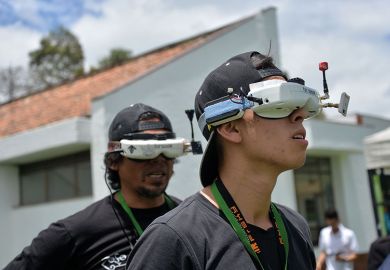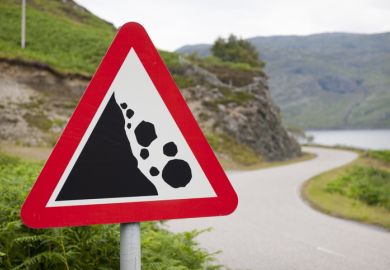Medical curricula must expand to cover climate change, which is amplifying global caseloads in every field of human health, a Melbourne conference was due to hear.
An Asia-Pacific forum of the World Health Summit was expected to discuss the need for climate change content in all health degrees, as global warming drives an additional 250,000 deaths every year from undernutrition, malaria, diarrhoea and heat stress.
Jonathan Patz, a visiting professor with forum host Monash University, said this was the tip of the iceberg. “Climate crisis is a human health emergency,” he said. “It’s exacerbating almost every type of illness.
“Extremes of the water cycle [cause] waterborne infectious diseases…and flood contamination [resulting in] mould and asthma. Wildfire smoke not only affects respiratory health but also leads to preterm labour and low birthweight infants, which has lots of health implications right off the bat.
“Climate change is real, it’s here, and it has multiple pathways through which it affects our health. Many medical students are demanding more curriculum on climate impacts. They see this as critical.”
Professor Patz, of the University of Wisconsin-Madison, is a long-serving lead author for the United Nations Intergovernmental Panel on Climate Change. Fellow speakers at the forum, from 22 to 24 April, were due to include Australian foreign minister Penny Wong and former New Zealand prime minister Helen Clark.
A 2022 open letter called on educators and regulators to ensure that graduating health professionals were able to “identify, prevent and respond to” the health impacts of climate change. “Universities and education stakeholders must update and evolve programmes such that they address risks from climate change,” says the letter, which cites 2020 survey findings that only 15 per cent of medical schools had incorporated the health impacts of climate change into their curricula.
Another study found that almost two-thirds of surveyed institutions offered such education. “However, curricula on climate health are still lacking and gaps in knowledge persist,” it noted.
Professor Patz said medical schools were paying insufficient attention to the health impacts of climate change, much as occupational exposure to chemicals had been glossed over in earlier decades.
He cited estimates that 5.1 million people died prematurely each year from air pollution caused by the burning of fossil fuels. “There are some golden opportunities in health benefits as we tackle the climate crisis. That’s another area that is important for the curriculum to recognise.”
Fellow panellist Renzo Guinto, of Duke-NUS Medical School in Singapore, said climate health content needed to be embedded in health curricula, particularly emerging health issues not currently covered.
Campus resources for higher education professionals on the Sustainable Development Goals
He said a 2021 study had identified young people in his native Philippines as “the most climate anxious” in the world. “It’s a mental health issue as much as it’s a physical health issue.
“We need…psychiatrists, mental health first aid providers, counsellors who also have some idea of the growing evidence around the links between the health of the climate and the health of our brains and hearts. No single disease group…is going to be immune to climate change.”
Dr Guinto said curricular change would also help to produce a “steady supply” of health workers. “We’ve seen…during the pandemic the shortages, the burnout experienced by health professionals, the exacerbation of health worker migration and brain drain. If we’re going to rethink human resources for health policy at national and global levels, we need to add a climate lens.”
Register to continue
Why register?
- Registration is free and only takes a moment
- Once registered, you can read 3 articles a month
- Sign up for our newsletter
Subscribe
Or subscribe for unlimited access to:
- Unlimited access to news, views, insights & reviews
- Digital editions
- Digital access to THE’s university and college rankings analysis
Already registered or a current subscriber?








